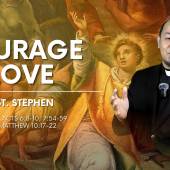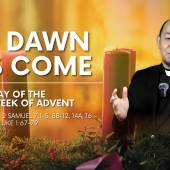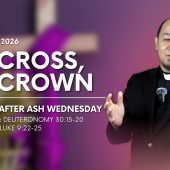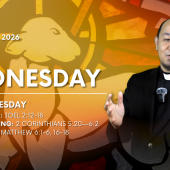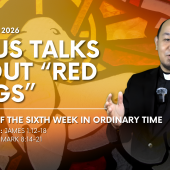Forgiving Others

“If you forgive others their transgressions, your heavenly Father will forgive you. But if you do not forgive others, neither will your Father forgive your transgressions.” Matthew 6:14–15
It’s truly amazing how often our Lord exhorts us to forgive. Much of Jesus’ Sermon on the Mount, from which we have been reading all week, continually calls us to offer mercy and forgiveness to others. And in the passage above from the end of today’s Gospel, Jesus offers us the consequences of not heeding His exhortations.
This passage is a sort of addendum to the “Our Father” prayer which immediately precedes it. The Our Father prayer gives us seven petitions, one of them being “forgive us our trespasses, as we forgive those who trespass against us.” It’s interesting to note that as soon as Jesus taught us this prayer with its seven petitions, He then reemphasised one of those petitions by stating it again as is seen in the passage quoted above. This added emphasis should assure us of the seriousness of this petition.
At first, Jesus simply tells us to pray for forgiveness “as we forgive.” But He then makes it clear that if we fail to do so, we will not be forgiven ourselves. This should highly motivate us to make every effort possible to completely forgive others from the deepest depths of our hearts.
Who do you need to forgive? Forgiveness can be a confusing endeavor at times. The act of forgiveness gets confusing when our feelings do not reflect the choice we make in our will. It is a common experience that when we make the interior choice to forgive another, we still feel anger toward them. But these disordered feelings should not deter us nor should we allow them to cause doubt in what we need to do. Forgiveness is first an act of the will. It’s a prayerful choice to say to another that you do not hold their sin against them. Forgiveness does not pretend that no sin was committed. On the contrary, if there were no sin committed, then there would be no need for forgiveness. So the very act of forgiving is also an acknowledgment of the sin that needs to be forgiven.
When you make the choice to forgive another, and if your feelings do not immediately follow after, keep forgiving them in your heart. Pray for them. Try to change the way you think about them. Do not dwell upon the hurt that they have inflicted. Think, instead, about their dignity as a person, the love God has for them and the love you must continue to foster for them. Forgive, forgive and forgive again. Never stop and never tire of this act of mercy. If you do this, you may even discover that your feelings and passions eventually align with the choice you have made.
Reflect, today, upon any lingering feelings of anger you experience. Address those feelings by the free and total choice to forgive the person with whom you are angry. Do so now, later today, tomorrow and on and on. Go on the offensive against anger and bitterness by overwhelming it with your personal act of forgiveness and you will find that God will begin to free you of the heavy burden that a lack of forgiveness imposes.
My forgiving Lord, You offer the perfection of forgiveness to me and call me to do the same toward others. I pray for Your forgiveness in my life. I am sorry for my sin and beg for Your mercy. In exchange for this holy gift, I pledge to You today to forgive everyone who has sinned against me. I especially forgive those with whom I remain angry. Free me from this anger, dear Lord, so that I may reap the full benefits of Your mercy in my life. Jesus, I trust in You.
Radio Veritas Asia (RVA), a media platform of the Catholic Church, aims to share Christ. RVA started in 1969 as a continental Catholic radio station to serve Asian countries in their respective local language, thus earning the tag “the Voice of Asian Christianity.” Responding to the emerging context, RVA embraced media platforms to connect with the global Asian audience via its 21 language websites and various social media platforms.










